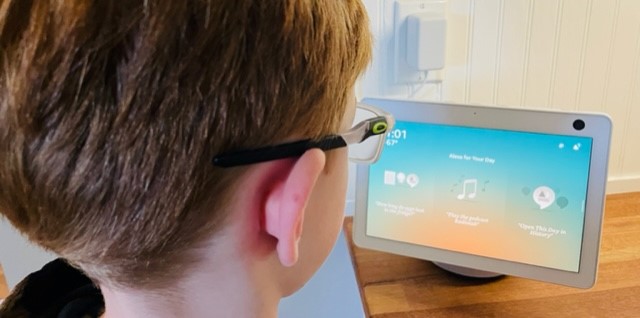
We live in a world of instant gratification. Let me be clear about something: I secretly love it. Whether it’s our phones or the little speakers and screens that live on our kitchen counters or bedside tables, we have access to knowledge 24/7. Need directions? We don’t have to worry with an atlas or a Mapquest printout that’s three pages long because now we have a real-time play by play of every turn. Need a recipe? There’s no searching through our grandma’s 1984 school fundraiser cookbook for that holiday cookie recipe because five billion holiday cookie recipes are at our fingertips. Need the weather for next Tuesday? With one click or spoken question, we know that it’ll be the perfect fall day here in Chattanooga next Tuesday.
Whatever we need to know, all we have to do is ask.
No matter how we ask or demand, the response is always strangely calm and kind. If you’re like me, sometimes the response is British depending on what voice setting you use. These days in most homes, cars, and lives, Alexa and Siri are always there. But, at what cost? I don’t mean the financial cost. Sure, we certainly pay for the ease of immediate answers. But, what about the personal cost? What about manners?
What about “please” and “thank you?”
Here’s what happened in our house recently. One night before bedtime, my son was talking to our Alexa. “Alexa, tell me a joke.” “Alexa, will it rain during recess tomorrow?” “Alexa, show me chocolate chip cookies.” With every command, she responded with her same, pleasant, sing-songy voice. He commanded. She replied. Over and over. And, right there in my kitchen, it hit me. There are entire generations walking around thinking that it’s ok to demand things from Alexa and Siri without saying “please” or “thank you.” Children who – without us realizing it – are being inadvertently taught to think that “please” and “thank you” aren’t necessary anymore. But, what’s infinitely worse is that our children are hearing us demand these same things as if we’re entitled. As I stood there, stopped in my tracks, I asked my little boy, “I’ve never told her ‘thank you.’ Have you?” He looked at me like I was an alien. Then, he thought for a second. “Let’s try it! ‘Alexa, thank you.’” She replied, “Any time!” then played a little melody. My son was as delighted as he was surprised. “Mama, I said ‘thank you’ and it made her happy!”
There’s a lesson to be learned here, friends.
What are Alexa and Siri, anyway? Well, I looked it up. (I didn’t ask Alexa. I actually looked it up on the internet with my fingers on a laptop like it was 2012.) Nine times out of ten, they are described as virtual assistants. Voice-controlled, artificially intelligent, virtual assistants. I remember when I was growing up, if I needed to know something I had to search through the set of encyclopedias at my grandparents’ house or go to a library or *gasp* ask an actual live human person. And, it usually took time. Lots and lots of time. Nowadays, it takes no time at all. And, here’s the funny thing. I just googled “How long does it take for Siri to reply to a question?” and guess what I got? A scroll-worthy list of articles that were ALL about how slow Siri is. On average? She takes ten seconds.
How dare Siri take ten whole entire seconds to reply to me!
Friends. This is the world we live in. This is the world our children are growing up in. A world where people write countless articles about how frustrated they are that it takes a virtual assistant ten seconds to answer a question. I used to have to ask my Nana to drive me to the library, then a few hours later (or maybe the next day), we might go. Might. Not to mention the drive there and the actual hunt for the elusive information in the library. Having questions and finding answers used to be an experience. Now it’s 10 seconds. And, we complain that it’s too long. So, not only are we losing our manners, we’re also losing our patience. We’re losing the treasure hunt. Because knowledge should always be considered a treasure, no matter how you find it. Come to think of it, manners are treasures, too. Maybe these days, especially these days, we need to look a little harder for those.





















